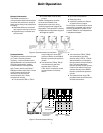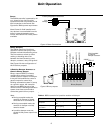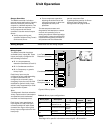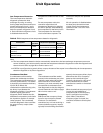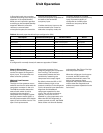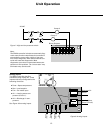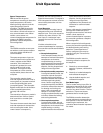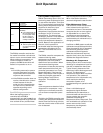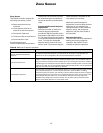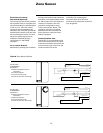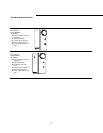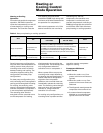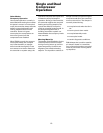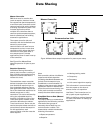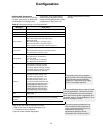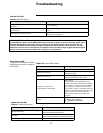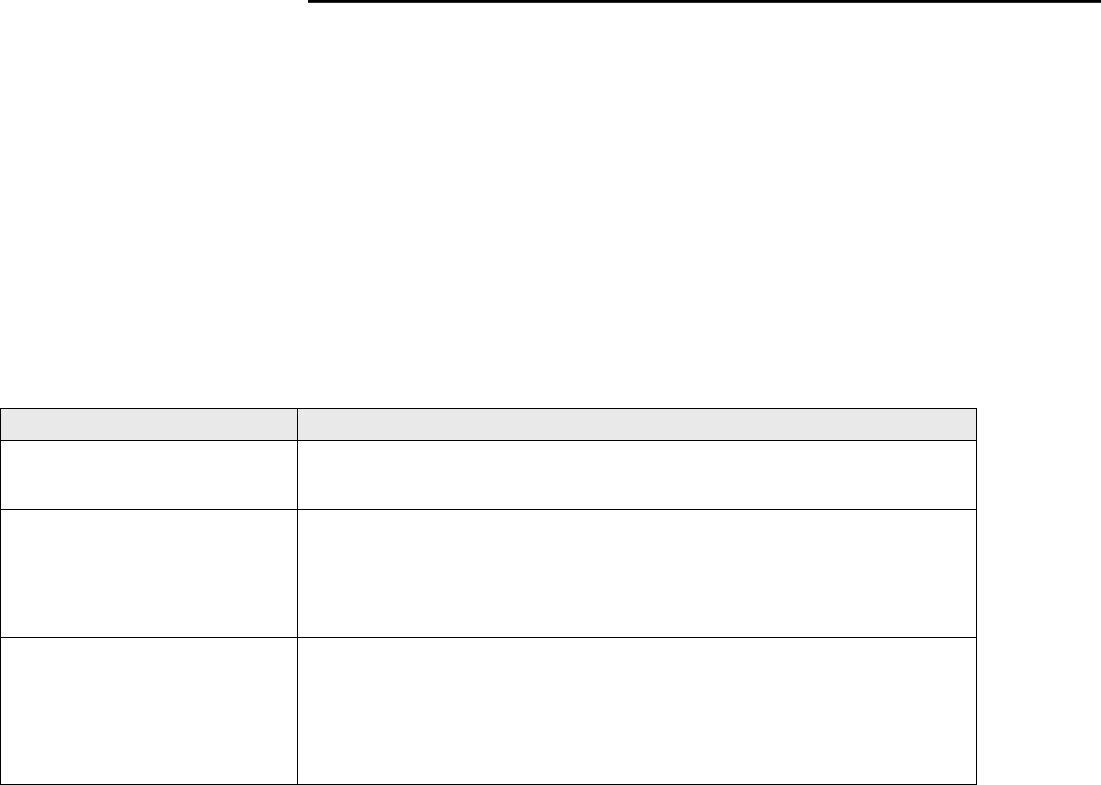
15
Zone Sensor
Zone Sensor
The ZN510 controller accepts the
following zone sensor inputs:
z Space temperature mea-
surement.
z Local setpoint (internal or
external on the zone sensor).
z Fan switch. (Optional)
z Timed override (ON and CANCEL).
z Communication Jack.
If both hardwired and
communicated space temperature
values exist, the controller ignores
the hardwired space temperature
input and uses the communicated
value.
Internal and External Setpoint
Adjustment
Zone sensors with an internal or
external setpoint adjustment
provide the ZN510 controller with a
local setpoint (50 to 85 F or 10 to 29.4
C). The internal setpoint adjustment
is concealed under the zone sensor’s
cover. To reveal the adjustable
setpoint wheel, remove the zone
sensor cover. The external setpoint
(when present) is exposed on the
zone sensor’s front cover.
When the hardwired setpoint
adjustment is used to determine the
setpoints, all unit setpoints are
calculated based on the hardwired
setpoint values, the configured
setpoints, and the active mode of
the controller.
Setpoint Operation
The controller has three methods of
heating and cooling setpoints
operation. See Table 5 for the
methods of setpoint operation.
Table 5: Methods of setpoint operation.
Method Situation used
Zone Sensor
(with an adjustable hardwired
setpoint)
A hardwired, adjustable setpoint is connected to the controller. Local setpoints are
enabled in the unit configuration. No communicated setpoint is present.
Communicated source
A setpoint is communicated to the unit controller (typically from a building automation
system or a peer controller). If both a hardwired setpoint and a communicated setpoint
exist, the controller uses the communicated value. The configuration feature for enabling
or disabling the local setpoint does not affect the setpoint handling when communicated
setpoints are used. The communicated setpoint always takes priority over the hardwired
setpoint, even when the local setpoint is enabled.
Stored default setpoints
The controller uses the locally stored default heating and cooling setpoints when neither
a local hardwired setpoint or communicated setpoint is present. When a building
automation system is present, the controller uses the default setpoints when no setpoint
is communicated to the controller and no hardwired setpoint exists. The controller uses
stored default setpoints when only a local setpoint exists, but the local setpoint is
disabled in the configuration of the controller. The controller always uses the stored
default (unoccupied) setpoints in unoccupied mode.



